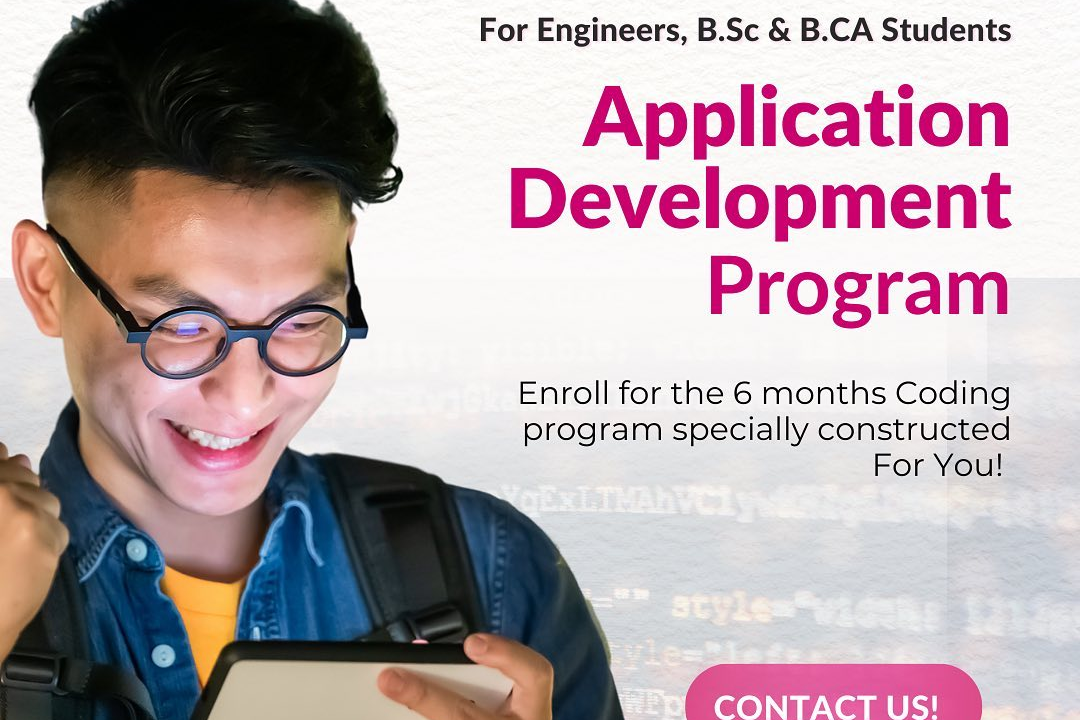Interview Questions In React Native For Freshers
React Native Interview Questions for Junior Candidates
Interview Questions In React Native For Freshers
Interview questions for React Native for freshers are designed to assess fundamental knowledge, problem-solving abilities, and understanding of React Native principles. These questions help interviewers evaluate a candidate's proficiency in the basic concepts of React Native, including rendering and lifecycle methods, component styling, state and props management, navigation, and core APIs. By effectively answering these questions, freshers demonstrate their understanding of the core building blocks of React Native, which is crucial for building robust and efficient mobile applications.
To Download Our Brochure: https://www.justacademy.co/download-brochure-for-free
Message us for more information: +91 9987184296
1 - Explain the purpose of React Native:
A framework that allows building native mobile apps using JavaScript and React.
2) What are the key components of React Native:
Components, Styles, State, Props, and Virtual DOM.
3) Describe the difference between State and Props in React Native:
State is local and mutable, while Props are immutable and passed down from parent components.
4) How do you handle user input in React Native:
Using event listeners, such as `onPress`, `onChange`, and `onSubmit`.
5) What is Flexbox and how is it used in React Native:
A layout system for defining the position and sizing of components.
6) Explain the concept of declarative UI in React Native:
Describing the UI with a declarative syntax, allowing for easy modifications.
7) How do you debug a Rea:
Use React Native Debugger, console logs, and breakpoints.
8) What are some common performance optimizations for React Native apps:
Use memoization, avoid unnecessary re renders, and optimize images.
9) Describe the role of AsyncStorage in React Native:
Used to store and retrieve data asynchronously on the device.
10) How do you handle navigation between screens in React Native:
Use the `react navigation` library to manage navigation stacks and transitions.
11 - Explain the difference between a functional component and a class component in React Native:
Functional components are simpler and stateless, while class components have state and lifecycle methods.
12) What is Redux and how is it used in React Native:
A state management library that provides a single source of truth for the application state.
13) Describe the purpose of the `useEffect` hook in React Native:
Used to perform side effects, such as fetching data or setting up subscriptions.
14) How do you handle errors in React Native:
Use try catch blocks, error boundaries, and logging for debugging.
15) What are some best practices for testing React Native apps:
Use unit testing frameworks like Jest, snapshot testing, and integration testing with Detox.
- Answer questions accurately and quickly. Each correct answer is worth a certain number of points, and the faster you answer, the more points you earn.
- Complete bonus rounds.* Bonus rounds are short, timed challenges that can earn you extra points.
- Use power ups.* Power ups can help you answer questions more quickly or correctly, and can be earned by completing certain tasks or by purchasing them with in game currency.
- Join a team.* Joining a team can give you access to exclusive bonuses and rewards, such as bonus points or power ups.
- Play regularly.* The more you play, the more points you'll earn. Many games offer daily or weekly bonuses for logging in and playing.
- Course Overview
- This course provides a comprehensive overview of the key interview questions commonly faced by freshers seeking a career in React Native development. It covers essential concepts, including component lifecycle, state management with Redux, asynchronous programming, and UI design. Through real-world examples and interactive exercises, the course empowers participants to confidently navigate the technical and behavioral aspects of React Native interviews, enhancing their chances of success in securing their first role as a React Native developer.
- Course Description
- This course is designed for freshers aspiring to ace interviews for React Native developer roles. It provides a comprehensive guide to the most frequently asked interview questions, covering essential concepts and practical aspects of React Native development. The course offers expert insights into the latest industry trends and best practices, helping participants showcase their skills and knowledge confidently during interviews.
- Key Features
- 1 - Comprehensive Tool Coverage: Provides hands-on training with a range of industry-standard testing tools, including Selenium, JIRA, LoadRunner, and TestRail.
- 2) Practical Exercises: Features real-world exercises and case studies to apply tools in various testing scenarios.
- 3) Interactive Learning: Includes interactive sessions with industry experts for personalized feedback and guidance.
- 4) Detailed Tutorials: Offers extensive tutorials and documentation on tool functionalities and best practices.
- 5) Advanced Techniques: Covers both fundamental and advanced techniques for using testing tools effectively.
- 6) Data Visualization: Integrates tools for visualizing test metrics and results, enhancing data interpretation and decision-making.
- 7) Tool Integration: Teaches how to integrate testing tools into the software development lifecycle for streamlined workflows.
- 8) Project-Based Learning: Focuses on project-based learning to build practical skills and create a portfolio of completed tasks.
- 9) Career Support: Provides resources and support for applying learned skills to real-world job scenarios, including resume building and interview preparation.
- 10) Up-to-Date Content: Ensures that course materials reflect the latest industry standards and tool updates.
- Benefits of taking our course
- Functional Tools
- 1 - React Native CLI (Command Line Interface): Used to create, run, and debug React Native apps.
- 2) Expo CLI: An alternative to React Native CLI, offering a more streamlined development experience with built in features like live reloading and Expo Go.
- 3) React Native Debugger: A Chrome extension that allows for real time debugging of React Native apps, enabling developers to inspect component state and network requests.
- 4) Redux Toolkit: A widely adopted state management library for React Native, simplifying the process of managing application data and actions.
- 5) Enzyme: A testing framework for React components, providing a set of tools for unit testing and integration testing.
- 6) Jest: A JavaScript testing framework that supports React Native, enabling developers to write unit tests for their code and ensure its reliability.
- Training Program for Students:
- Comprehensive curriculum covering core React Native concepts, tools, and best practices.*
- Hands on exercises and projects to reinforce learning and practical application.*
- Expert instructors with extensive industry experience in React Native development.*
- Mentorship and support to guide students throughout the training program.*
- Access to real world case studies and industry insights.*
- Certification upon completion to recognize proficiency in React Native development.*
- Strategies to Increase Points for Rewards and Loyalty Programs:
- 1. Increase Purchase Frequency: Make regular purchases from participating businesses to accumulate points faster.
- 2. Refer Friends: Invite others to join the program through referral codes or links to earn bonus points.
- 3. Enroll in Auto Pay: Set up automatic payments for recurring bills or services to passively earn points.
- 4. Complete Surveys and Offer Feedback: Participate in market research surveys or provide feedback to businesses to gain additional points.
- 5. Take Advantage of Double Points Offers: Look for special promotions and events that offer double or triple points on purchases.
- 6. Join Loyalty Tiers: Advance to higher tiers within loyalty programs by reaching certain spending or engagement thresholds, which typically offer increased rewards.
- 7. Use Credit Cards with Rewards: Link your credit cards to loyalty programs to earn points on every purchase.
- 8. Check for Unclaimed Points: Regularly review your account statements and loyalty apps to ensure you're not missing out on any unused points.
- 9. Look for Partnerships: Explore cross promotions with other businesses that offer points for using their services or purchasing their products.
- 10. Negotiate with Businesses: If you're a high value customer, consider negotiating with businesses to increase your point earning potential.
- Tips for Maximizing Points:
- Use points strategically:* Redeem points for higher value items or experiences.
- Combine points from multiple programs:* Link multiple loyalty accounts to accumulate points faster.
- Keep track of point expiration:* Set reminders to use points before they expire.
- Monitor point earning opportunities:* Stay informed about new promotions and ways to earn additional points.
- Be patient:* Building a substantial points balance takes time and consistency.
- Browse our course links : https://www.justacademy.co/all-courses
- To Join our FREE DEMO Session:
- This information is sourced from JustAcademy
- Contact Info:
- Roshan Chaturvedi
- Message us on Whatsapp:
- Email id: info@justacademy.co
- Flutter Technical Interview Questions
- Dart Language Interview Questions For Experiencedppa evitaN tc












